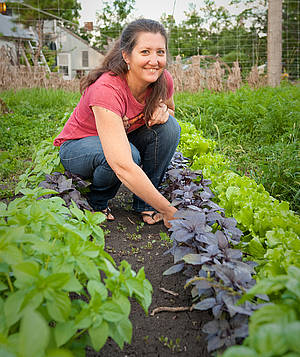
Whether in an urban or rural setting or in the middle of the nation’s breadbasket, food is fundamental to well being. And removing barriers to access healthy food options hinges on organized collaboration to generate results.
A new article in the Journal of Agriculture, Food Systems and Community Development features the efforts of Dr. Abby Gold, vice chair of the NDSU Department of Public Health and Cass Clay Food Partners to provide expertise and advocacy in the community.
Food policy councils and food networks partner with local governments to create a healthier and vibrant food system. The Journal article by Abby Gold and Noelle Harden, associate professor with University of Minnesota Extension Service, highlights the unique boundary-crossing role the Cass County Food Partners plays in order to:
- Increase opportunities to grow, buy and sell local food
- Help organizations working to provide community gardens, teach food skills and build relationships with community members around growing, cooking and sharing local food
- Support groups that organize to address hunger, waste and community food resilience
- Educate elected officials and other key stakeholders about their role in the food system
Cass Clay Food Partners, with support from the Metropolitan Council of Governments, has served the community since 2010 to organize food efforts across multiple organizations to create a healthier and more vibrant food system in the Red River Valley.
The group navigated the landscape of local food system planning, including the most recent effort to update the Metropolitan Food Systems Plan in the fall and winter of 2018.
There is more work to be done to advance at the local level, particularly by activating citizen involvement, according to Gold and Harden.
The Journal article highlights the importance of an integrated approach to food policy and community food systems.
“Simply forming a food policy council is not enough to change local policy; such efforts will be more successful if connected to the vision and needs of local citizens and stakeholders,” said Gold.
In the article, Gold and Harden provide specific recommendations to engage diverse audiences in order to be successful.
The Journal article provides qualitative research and analysis to help guide such efforts. The article is available at doi.org/10.5304/jafscd.2018.08B.010


